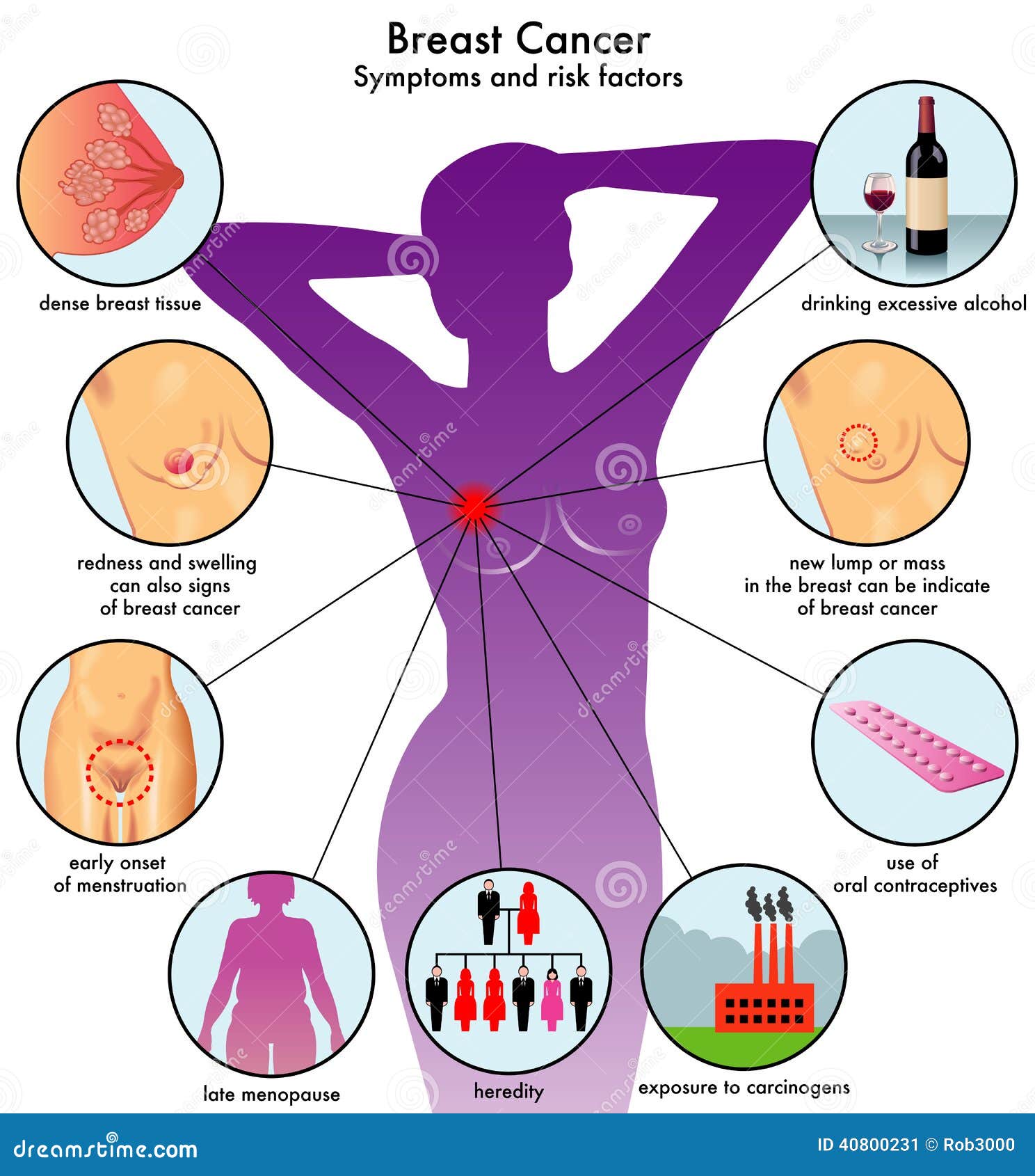mammogram [mam-uh-gram]
metastatic [muh-tas-tuh-sis]
menstrual cycle [men-struh l] [sahy-kuh l]
mammogram [mam-uh-gram]
Paget's disease \pa-jəts-\ [dih-zeez]
ulceration [uhl-suh-reyt] symptomatic [simp-tuh-mat-ik]

Overview
The first sign of breast cancer often is a breast lump or an abnormal mammogram. Breast cancer stages range from early, curable breast cancer to metastatic breast cancer, with a variety of breast cancer treatments. Male breast cancer is not uncommon and must be taken seriously.

Symptoms
In its early stages, breast cancer usually has no symptoms. As a tumor develops, you may note the following signs:
- A lump in the breast or underarm that persists after your menstrual cycle. This is often the first apparent symptom of breast cancer. Lumps associated with breast cancer are usually painless, although some may cause a prickly sensation. Lumps are usually visible on a mammogram long before they can be seen or felt.
- Swelling in the armpit.
- Pain or tenderness in the breast. Although lumps are usually painless, pain or tenderness can be a sign of breast cancer.
- A noticeable flattening or indentation on the breast, which may indicate a tumor that cannot be seen or felt.
- Any change in the size, contour, texture, or temperature of the breast. A reddish, pitted surface like the skin of an orange could be a sign of advanced breast cancer.
- A change in the nipple, such as a nipple retraction, dimpling, itching, a burning sensation, or ulceration. A scaly rash of the nipple is symptomatic of Paget's disease, which may be associated with an underlying breast cancer.
- Unusual discharge from the nipple that may be clear, bloody, or another color. It's usually caused by benign conditions but could be due to cancer in some cases.
- A marble-like area under the skin.
- An area that is distinctly different from any other area on either breast.



